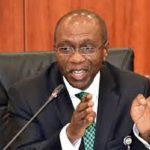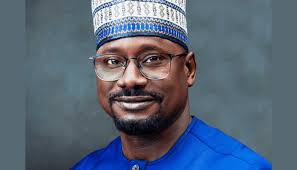EDITORIAL: On restructuring Nigeria
The restructure-Nigeria discourse went a notch higher recently when a sociocultural group of prominent Yoruba sons and daughters rose from a meeting and declared that it would mobilise its members against the 2023 elections except Nigeria was restructured. The tension in the country is palpable. The ship of state is drifting, and the nation’s rulers must listen to the people.
Agitations over the litany of socio-political contradictions that plagued the pulling together of many multiple nationalities to form corporate Nigeria have never been short in supply. These agitations shaped the First and Second Republics. They can be said to have provoked military interregnum between 1966 and 1999 and were renewed in the Third Republic.
READ ALSO: Insecurity: Mimiko declares that time to Restructure Nigeria is now
Quite often they are anchored on devolution of power, fiscal federalism, state creation, establishment of state police and local government autonomy amongst others. They are also provoked by lopsided appointments, increasing poverty, and growing insecurity. This recurring decimal exposes the fundamental deficiency of the Lugardian 1914 experiment.
There had been efforts towards addressing the problem. There were the pre-independence London and Lagos Conferences as well as the Henry Willinks Commission in 1957. The post-independence military regimes of Olusegun Obasanjo, Ibrahim Babangida and Sanni Abacha made efforts. In 2005, President Obasanjo commissioned a National Political Reform Conference which was intended to address the same problems.
President Goodluck Jonathan also organised the 2015 National Confab. But rather than satisfy the highly disenchanted polity, these attempts have been laden with politics of mistrust and suspicions. For example, many saw the Abacha National Constitutional Conference as a way of truncating the June 12 struggle. The current trend is restructuring which Yoruba leaders recently placed as a condition for their participation in the 2023 elections.
Indeed, the contradictions of the Nigerian State, the agitations to address them, as well as the distrust and suspicion that greeted the efforts suggest that Nigeria demands a re-visit in form and in structure. This is now imperative as a major group in the union insists that it would not participate in the 2023 elections except there is restructuring.
While we consider this an extreme position, we strongly call on the Nigerian government to seize the opportunity to appraise the way Nigeria is currently structured. Every entity comes from two values: the thematic and the structural. It is the thematic that stands as the foundation upon which the structural is built.
The thematic also allows structures built to interconnect and operate as a political system. This thematic, for Nigeria, is the need to override the Lugardian formula and project those very values that unite us, especially those two lines from our first national anthem: ‘though tongue and tribe may differ, in brotherhood we stand’.
To arrive at this thematic, our national disposition should be that which gives a bottom-up opportunity for the different nationalities that make Nigeria be part of its wealth and resources. Our thematic appraisal of Nigeria should include the rights of groups and individuals, security, fiscal responsibility and resource management, interethnic group relations, and policy formulation.
Let us stress those positive values that once held us together: mutual cultural and interethnic respect. It is upon this thematic appraisal that structures can now emerge to re-invent Nigeria as a system of valuable interconnected political structures. Restructuring which comes in terms of federalism, fiscalism, geo-politics, and governance can rest upon it.
The elite must realise their role in the issue. In the ordinary sense, many ethnic groups have no problem with one another, but when it comes to the resources of the nation which are under the control of the elite, suspicion and divisions are triggered off by greed and avarice. Substantive issues should be the focus of the restructuring that comes after the thematic reappraisal.
A two-tier federalism of Federal and States in which local governments are subsumed, structured, and funded by the states is the new way to go. While the regional structure that was experimented in the First Republic may have worked, it will be unrealistic to, this time, revert to it. This is because many of today’s federating states were created under pressure of internal contradictions and hostility.
They will most likely resist being regrouped. State creation has divided the country more than unify it. States should fund and structure the local governments that they create. There should be judicious and equitable decentralisation of powers from the centre to other federating units. The federal character principle which was introduced to equalise development and opportunities in Nigeria has been abused.
Restructuring does not necessarily mean that every ethnic nationality should return to base. What it means is to create a conducive environment for everyone to thrive in whatever part of the country they find themselves. As a nation, we must admit that we have vacillated long enough. Much now rests on the current administration to intervene before the full cost of our system paralysis comes due. The restructuring window appears another opportunity to save Nigeria.
The current Nigeria is slowly but steadily drifting into the abyss of increased ethnic distrust and possible civil war. A reinvented, re-visited or restructured Nigeria is a great opportunity to avert an implosion or a catastrophic end. It promises to be a creation of representatives of the Nigerian people. It raises hope of a victorious nation-state with better management, selflessness with men and women of integrity as leaders.
The restructured Nigeria can make the country occupy her rightful position in global affairs. Mr President should set in motion the process of restructuring Nigeria now.









